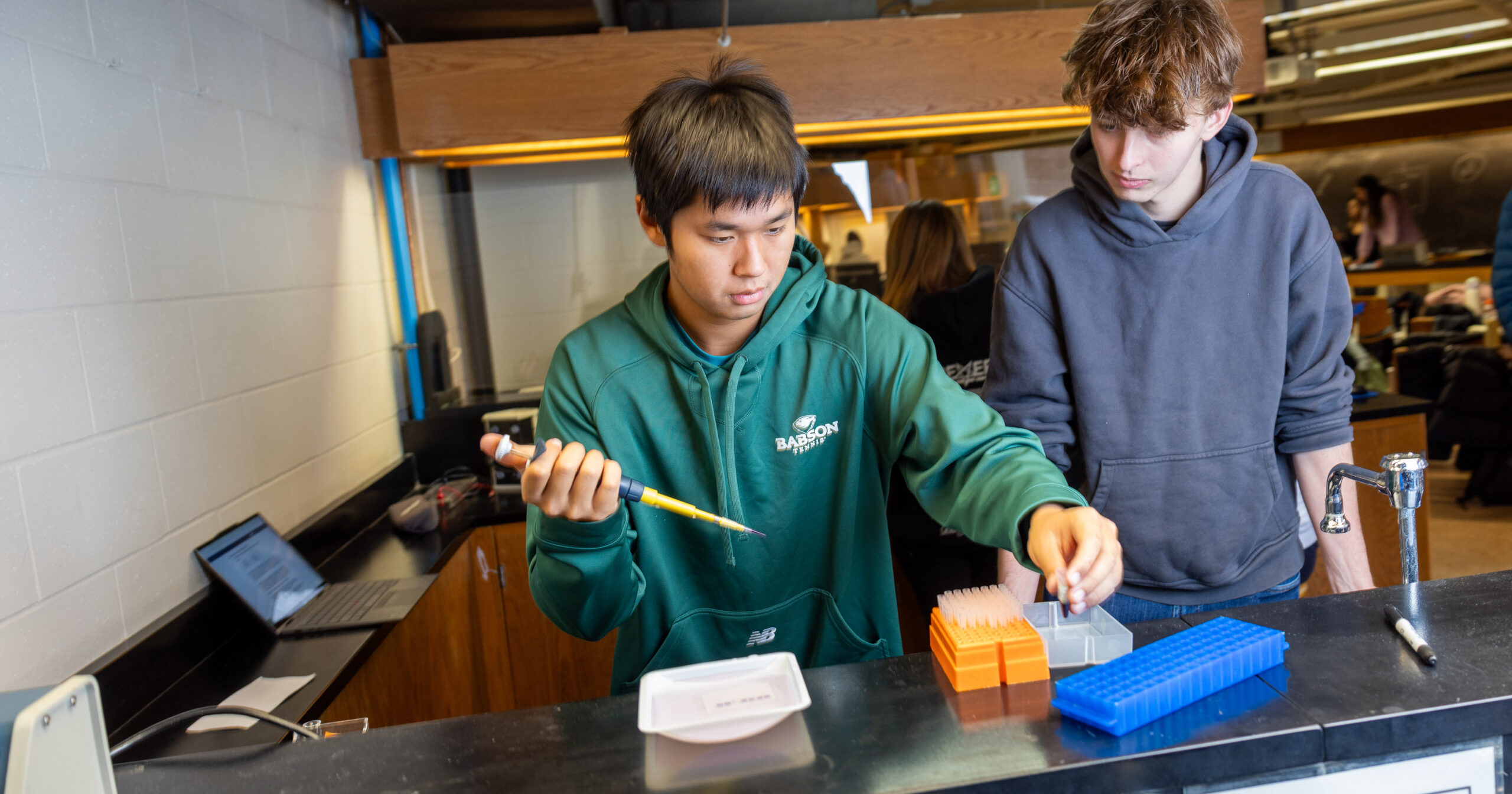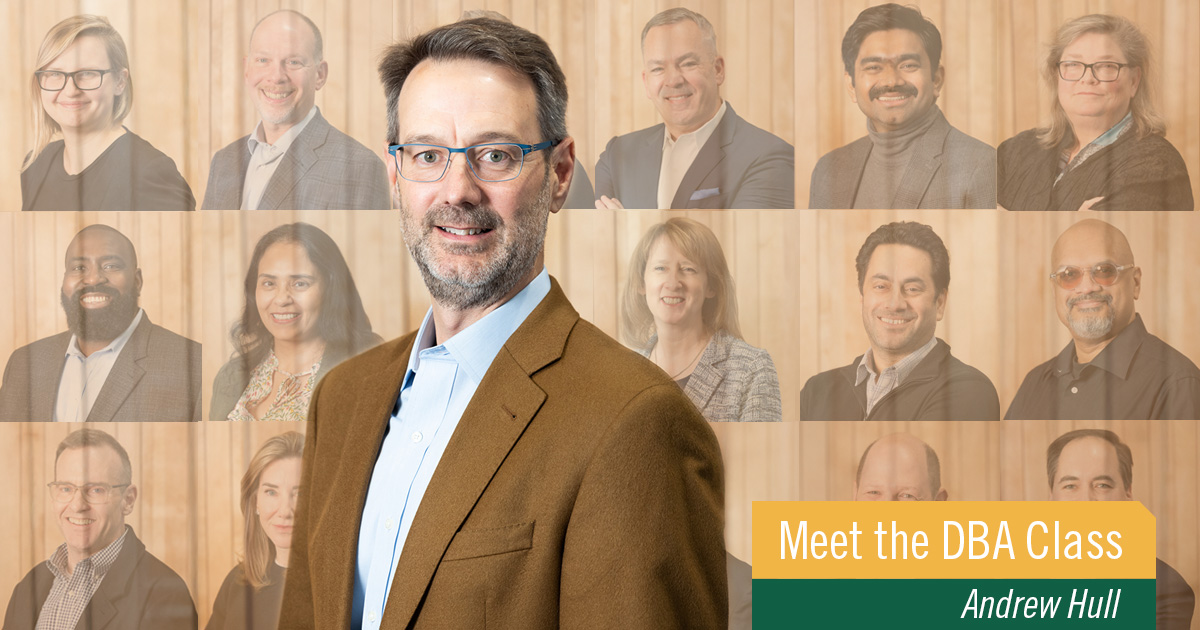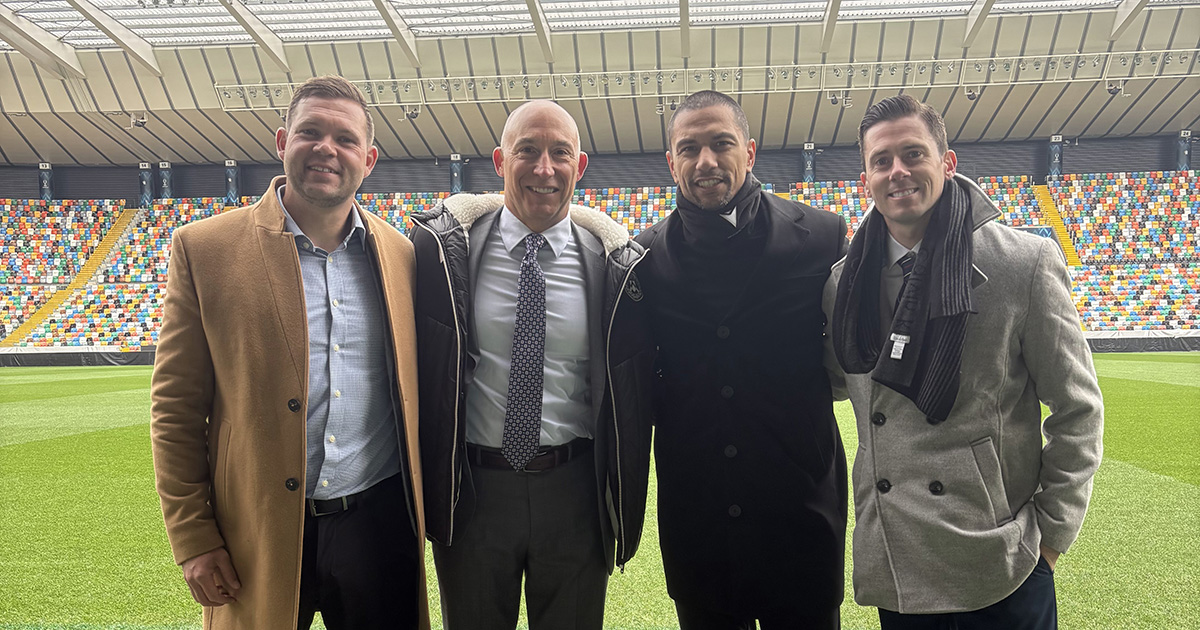What Is Experiential Learning?
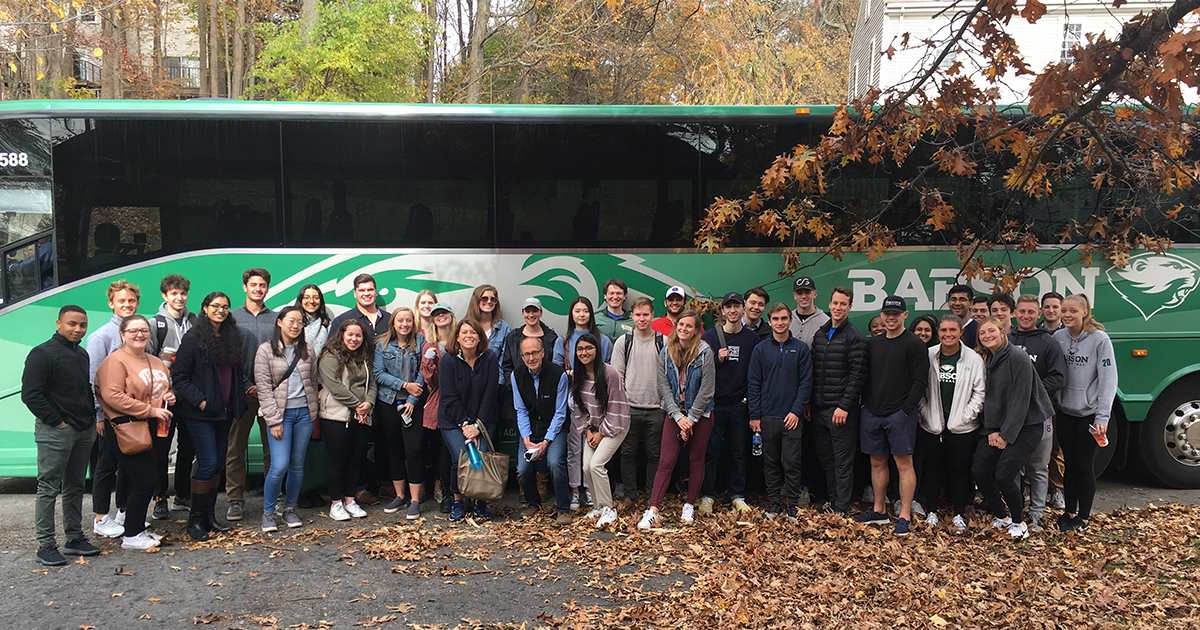
You hear it all the time, but what is experiential learning, really?
At Babson College, we believe that in order to learn, you must do, and to do well, you must learn from those who do it best.
Experiential Learning Model
According to David Kolb, well-known psychologist and educational theorist, “Learning is the process whereby knowledge is created through the transformation of experience.”
He describes this concept through The Experiential Learning Cycle which entails concrete experience, reflective observation of a new experience, abstract conceptualization, and active experimentation.
After just their first semester on campus, Babson College students are well versed in this cycle.
Some students recently culminated a semester’s worth of work participating in a renowned, annual competition with the Federal Reserve Bank of Boston. Others spent some evenings this fall at the Museum of Fine Arts (MFA) or at a Broadway show—not just to admire the artwork or bravado, but to use their business savvy for the benefit of the local art scene.
“I love taking students out of the classroom and having them work in industry,” said Assistant Professor Anjali Bal. “I think it is great when students can apply what they learn in the classroom to a business.”
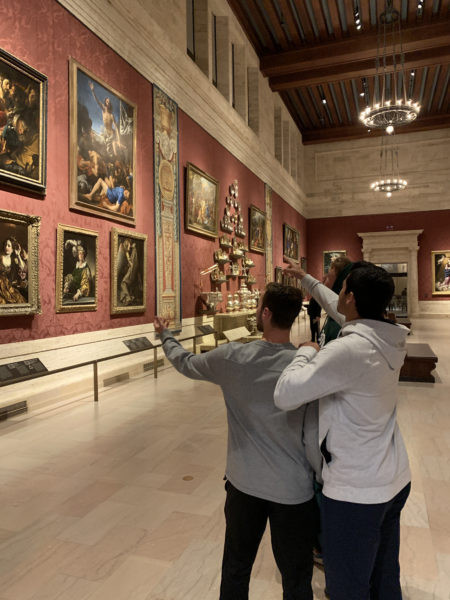
Marketing Students at the Museum of Fine Arts
Every semester, faculty offer a more diverse, and better yet, unmatched, catalog of experiential learning opportunities in the form of credited coursework.
“Our faculty and students demonstrate what is possible when we allow the classroom to become a space for creativity and innovation,” said Dean of the Undergraduate School Ian Lapp.
So, what is experiential learning? Spend a day on Babson’s campus, and see for yourself.
Preparing for the Real World
Each fall, the Federal Reserve Bank of Boston holds a competition between colleges and universities where student teams present on the current state of the U.S. economy, and give a monetary policy recommendation. Winners compete for a chance to participate at a national level in Washington, D.C.
For the past two years, Babson has offered a course—College Fed Challenge—dedicated to preparing them for this very competition.
“This course is very small and very hands on,” shared Assistant Professor Josh Staveley O’Carroll, who co-teaches the class with Assistant Professor Joshua Stillwagon. “The instructor rarely lectures; instead, students prepare weekly presentations and have to answer questions on their topics in front of the class.”
Current student Anna Dibble ’22 added that, “being a part of Babson’s College Fed Challenge team was experiential learning at its finest. As our team prepared for this competition, we closely monitored the state of the U.S. economy … and adjusted our recommendations to the Fed accordingly. In the end, this experience was just really quite fun, working alongside a small group of professors and students whose contagious passion for economics was the ultimate motivator.”
“Being a part of Babson’s College Fed Challenge team was experiential learning at its finest.”
Anna Dibble '22
This year, the Babson team won its first round against Bates College, Tufts University, and the University of Connecticut.
“Students who have participated have reported that it was incredibly helpful during future job interviews,” said Staveley-O’Carroll. “They have been able to discuss the current state of the U.S. economy in more depth, and with more conviction than the interviewers themselves.”
Changing Perspectives and Influencing Business
Students in two separate Babson College courses were sent to the Museum of Fine Arts this fall, given completely different assignments, “which we believed provided them with two completely different lenses by which they viewed the (museum’s) collection,” said Assistant Professor Krista Hill and Professor Mary Pinard, who teach Services Marketing and Poetic Elegy, respectively.
Hill’s students were asked to create a new service innovation that would attract Gen Z consumers to the museum, while Pinard’s students were to write a poem in response to works of art associated with loss.
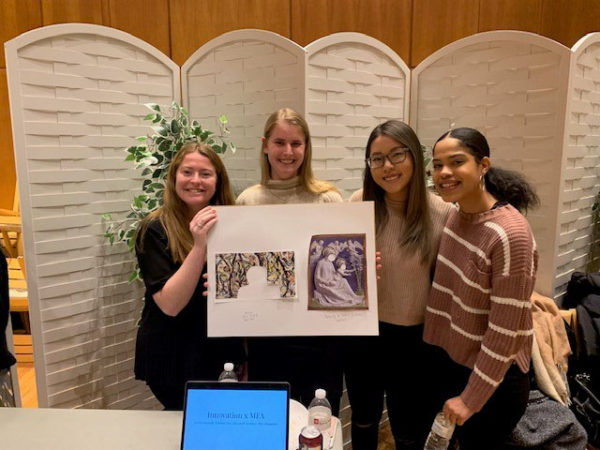
Students showcase their field work from courses with Assistant Professor Krista Hill and Professor Mary Pinard.
At an end-of-semester event, the classes came together to present as one. Some innovations included a Blind Date at the Museum event, a custom museum tour based on patron interests, and interactive exhibits that allows visitors to immerse themselves in art. A student of Pinard’s said, “What appeared to be a shiny pentagon with mirrors to me, was a reflection of lost beauty and soul within Islamic culture to one of my group members.” For her, the exercise demonstrated the value of perspective.
Nearly 50 students in Senior Lecturer Kerry Rourke’s Suburban America in Literature and Culture class set out on a daylong experiential learning adventure in historic Concord and Devens, Massachusetts. Together with Dan Gainsboro, founder of NOW Communities, the students saw firsthand the importance of integrated sustainability—for people and the environment—the use of shared resources in suburb-dense development areas, and how to scale sustainable, energy-efficient building practices while preserving community.
A complement to her coursework, Rourke sees “the work of NOW Communities as a positive, solutions-based approach to many of the challenges students encounter in the literature and culture of the suburbs,” she shared.
The Benefits of Experiential Learning
When asked, what is experiential learning and what does it look like at Babson College, Dean Lapp has no shortage of stories and insight to tell.
In addition to these two recent examples, Lapp also was quick to point out the efforts of such professors as Bal, who engaged her Sports Marketing students in a real-time collaboration with the Boston Pride Women’s Hockey Team—one of the founding teams in the National Women’s Hockey League (NWHL).
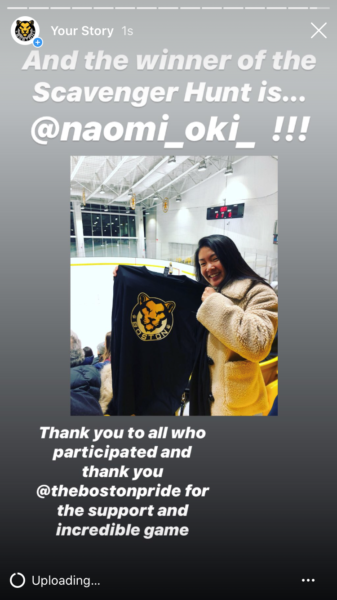
Students created a social media campaign for a National Women’s Hockey League team as part of a course with Assistant Professor Anjali Bal.
Put in groups and assigned varying target markets, her students were tasked with producing actual ticket sales and activating a pre-game social media campaign.
“The cornerstone of this project is that we have a phenomenal professional women’s hockey team in Boston. And, people have never heard of them,” said Bal. “That is an issue. Through ticket sales and social media, students are creating real impact both for the NWHL and for the Boston Pride. Plus the Pride are having an amazing season so that makes it even more rewarding.”
“Working with the Babson class through our discussions and their execution of the project provided a unique perspective of our product,” shared Karilyn Pilch, general manager of Boston Pride National Women’s Hockey League. “Their vision helped generate proactive conversations within our staff and generated great ideas for future projects to enhance our fan experience.”
Adeline Lalor ’21 shares Bal’s and Pilch’s excitement. “Babson and its professors have always done an incredible job of implementing programs, classes, and projects that engage all students in a way that allows them to take initiative, make mistakes, learn, and grow. Overall, the experience was a fantastic way to grow in the field of sports marketing, but even more so it was genuinely very fun, especially being a female student athlete myself.”
Posted in Community
